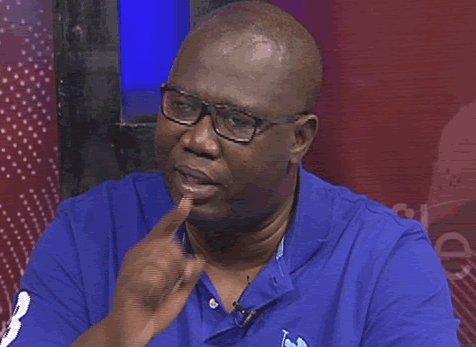Ghana will you soon be the preferred destination for oil and gas exploration – Faibille

Mr Egbert Faibille Jnr, the Chief Executive officer of the Petroleum Commission (PC), has said the award of the International Tribunal for the law of the Sea(ITLOS) in favour of Ghana would further strength her position as a preferred destination for oil and gas exploration and production in the sub region.
He said in view of this the Petroleum Commission would ensure that operators and licensees execute the minimum work programme expectations in their petroleum agreements.
This, he noted, would not only ensure investment in the local economy but would also create jobs and skills transfer for the youth.
Mr Faibille Jnr said this during the third annual consultative meeting with the Western Regional House of Chiefs and other stakeholders in Takoradi.
The meeting was to among others interact with key stakeholders in the region to enable the Commission, provide updates on the upstream petroleum sector.
It also created a platform for the International Oil Companies (IOCs) to share their Corporate Social Responsibility (CRS) projects and initiatives in the region.
Mr Faibille Jnr said the Commission believes that an enduring partnership with the Regional House of Chiefs and other key stakeholders in the region was the surest way of ensuring that the desired level of development for the region was achieved.
He said plans for the development of the Greater Jubilee full field was recently approved paving the way for expansion works on the current Jubilee field which would open new opportunities for the local service providers, create jobs and investment in the local economy.
Mr Faibille Jnr said the Commission since its establishment has been working on a number of laws that are critical for prudent regulation of the sector, adding that the Health Safety and Environment Regulation and the Data Management Regulations draft legislations have been laid before parliament for consideration.
He said government was determined that the country would not only be a recipient of direct resources from petroleum operations but create value through local content and local participation, “to this end the country took decisive steps to create an enabling environment for indigenous Ghanaian companies to thrive”.
He said the Commission has ensured that people in the project affected communities benefitted from the project, adding that this was clearly evidenced with the Onshore Receiving Facility at Sanzule where certain jobs and services were for indigenes of Sanzule community and the surrounding areas alone.
Mr Faibille announced that FPSO was currently producing about 45,000 barrels of oil and that FPSO partners were also conducting further studies in adjoining fields called ‘block 4’ and when proven to be economically viable it would result in increased reserves.
He said though the oil and gas sector had chalked some successes it was challenged with competition for space among various users of the sea.
“We have been informed of numerous incursions into the safety zones around our offshore installations”, he said and appealed to the chiefs and fishing communities to note that the zones were earmarked to also protect them and their activities.
Mr Faibille Jnr said the government would ensure that oil production contributed directly towards improving the standards of living of the people and accelerating socio-economic development.
Ogyeahoho Yaw Gyebi II, the President of the Western Regional House of Chiefs, called on the Commission and IOCs to help create alternative livelihoods for fishermen in the Western Region as various activities offshore were greatly affecting their fishing activities.
He said there is the need for government to invest some of the oil revenue into other sectors of the economy to prevent the country from facing the ‘Dutch disease’ and urged IOCs to begin adding value to their produce.
On CSR, Ogyeahoho Gyebi asked that IOCs should involve them during the need assessment time instead of imposing projects on beneficiary communities and asked that they should invest more on education to enable the region get more category A schools.
Mr Mahami Salifu, Board Chairman of the Commission, said with the reconstituted board it was going to make a paradigm shift from talk shows to action oriented programmes.
He said the commission would continue to engage the appropriate stakeholders, especially chiefs, every six months instead of the annual meetings.
Source: GNA
